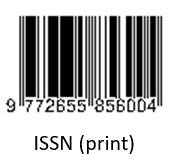Microcontroller Based Simple Water Flow Rate Control System to Increase the Efficiency of Solar Energy Water Distillation
(1) Politeknik Mekatronika Sanata Dharma Yogyakarta
(2) Department of Mechanical Engineering, Faculty of Science and Technology, Sanata Dharma University, Yogyakarta, Indonesia
(3) Department of Mechanical Engineering, Faculty of Science and Technology, Sanata Dharma University, Yogyakarta, Indonesia
(*) Corresponding Author
Abstract
The current problem of solar energy water distillation is in its low efficiency. Low efficiency is caused by inefficient water evaporation processes. Increasing the efficiency of water evaporation is done by controlling the rate of water entering into the absorber. The commonly used mechanical control system still has weaknesses such as the instability of the water entering the absorber. This causes less effective evaporation of water so that the resulting distillation efficiency is not optimal. The water rate input system for distillation in this study is based on a simple microcontroller. The microcontroller-based input water rate control system allows the rate of input water with a small but continuous flow rate so that the water evaporation process can be more effective. This study aims to improve the efficiency of solar energy water distillation by increasing the efficiency of the water evaporation process through controlling the flow rate of water inlet. The research was carried out by the experimental method. The parameters varied were: the rate of input water which was 0.3 l / hour, 0.5 l / hour and 1.2 l / hour. Parameters measured in this study were: (1) temperature of absorber, (2) temperature of the cover glass , (3) temperature of cooling water, (4) input water temperature, (5) ambient air temperature, (6) distilled water results, (7) solar energy coming in and (8) time of recording data. The results showed that the production of distillation water using microcontroller-based water rate control was a maximum of 523% compared to the model without water rate control at a water flow rate of 0.3 liters / hour, with distillation efficiency of 66%. From the results of this study it can also be concluded that microcontroller based water flow rate controller is more stable than mechanical water flow controller, especially in small flow
Full Text:
PDFReferences
H. M. Ahmed, A. K. Al Taie, and M. Almea, Solar water distillation with a cooling tube, International Renewable Energy Congress, pages 6 10, November 2010.
T. J. Jansen, Teknologi Rekayasa Surya, PT Pradnya Paramita, Jakarta, 1995.
A. J. N. Khalifa and A. M. Hamood, Experimental validation and enhancement of some solar still performance correlations, Desalination and Water Treatment, 4 (1-3), 311 315, 2009.
D. W. Medugu and L. G. Ndatuwong, Theoretical analysis of water distillation using solar still, International Journal of Physical Sciences, 4 (11), 705 712, 2009.
M. Banzi and M. Shiloh, Getting Started with Arduino: the Open Source Electronics Prototyping Platform, Maker Media, Sebastopol, 2015.
M. W. Volk, Pump Characteristics and Applications 2nd Edition, CRC Press, Boca Raton, 2005.
G. Caraballo, An arduino based control system for a brackish water desalination plant, Master Thesis, University of North Texas, Denton, 2015.
N. Banerjee, S. Mukherjee, A. Mitra, A. Sanyal, and S.T Mandal, Arduino based liquid dispensor system using peristaltic pump, B. S. Project, West BengalUniversity of Technology, Kolkata, 2017.
https://milonetech.com/p/about-etape (Accessed on 25-05-2019).
DOI: https://doi.org/10.24071/ijasst.v1i2.1923
Refbacks
- There are currently no refbacks.
Publisher : Faculty of Science and Technology
Society/Institution : Sanata Dharma University

This work is licensed under a Creative Commons Attribution 4.0 International License.












